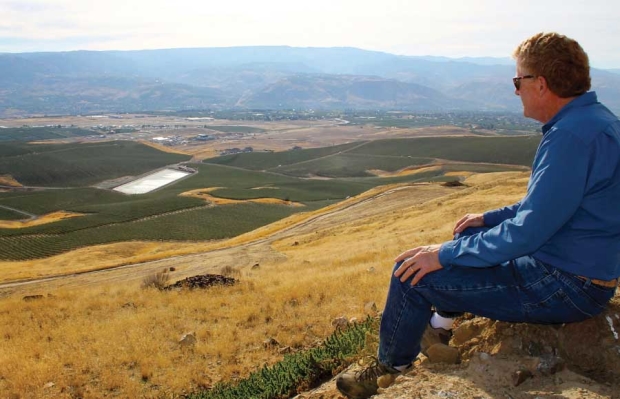
When Scott McDougall, co-president of the Washington fruit growing and packing company McDougall and Sons, heard there was an 830-acre parcel of open land with water rights available near Wenatchee, he felt a blend of trepidation and excitement.
With orchard establishment costs at around $50,000 per acre, the financial stakes are high. But Scott knew it was unlikely that a property of that size — with water rights and close to their packing house — would ever come up for sale again.
McDougall and Sons is a mid-sized family operation that needs to keep expanding in order to remain competitive in the industry today, he said.
So he and brother Stuart, who jointly own the company, decided to seize the opportunity.
The property is a former dryland wheat farm tucked in a little-known area of East Wenatchee. No doubt because of its undulating ground and breathtaking views, there were plans at one time to develop it into a golf course.
“It’s just a unique piece of ground,” Scott said.
Scott and Stuart named it Legacy Orchard in memory of their father, Bob, who visited the property when they were purchasing it three years ago but died shortly after at age 87 and never saw it developed.
“He at least saw the land,” Scott said. “He would love it. The new planting systems — he was intrigued by that and with how unique this property is with all the elevation change and the overall beauty.”
The orchard’s name also refers to what Scott and Stuart, who are fourth-generation orchardists, hope will be their legacy for the next generation.
Stuart’s son, Bryon, is company vice president and Scott’s son, Tyler, recently joined the business.
About 570 acres on the new property are plantable, making it their largest orchard.
The water is pumped from a well near the Columbia River, about 3 miles away, into three ponds at the orchard holding 1 million, 5 million, and 15 million gallons of water ready to be used for frost control, irrigation and evaporative cooling.
Varieties
The elevation ranges from 1,400 to 2,140 feet, enabling them to plant varieties at different altitudes to spread out the harvest window.
After installing seven miles of deer fence, they planted 230 acres in 2014 and another 90 acres last spring.
Varieties include Ambrosia, Envy, Gala, Fuji and Honeycrisp. There are also 20 acres of cherries and cherry and apple rootstock trials. (Read related story: “Race to the top”)
Over the next two or three years, the orchard will be completed with more Envy, Jazz and Cosmic Crisp (WA 38) plantings and possibly other managed varieties.
Scott said his initial plan was to plant the whole orchard over the course of three years, but Cosmic Crisp, the new Washington State University variety, won’t be available for planting until 2017, and then only in limited quantities. McDougall and Sons has been assigned 20,000 of the first trees.
Scott is excited about the variety, which will be restricted to Washington producers, and hopes there will be a cooperative effort among the state’s marketers.
Steep V
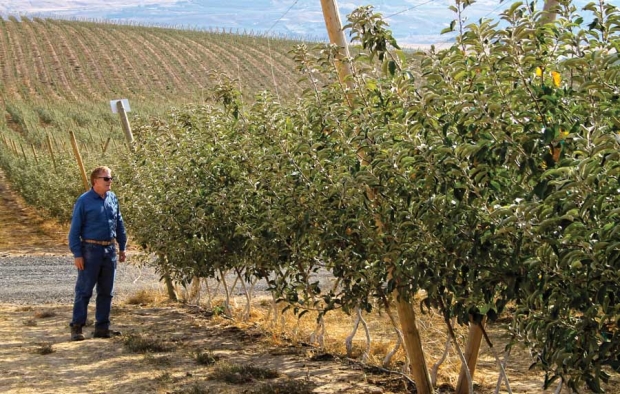
All the apple plantings at Legacy are on a steep V system with trees 2 feet apart and 12 feet between rows, for a total of 1,815 trees per acre.
At McDougall’s other ranches in the Columbia Basin, apples are on a vertical system on a 3-by-10-foot spacing (1,452 trees per acre).
The wider row spacing at Legacy will lend itself better to mechanized equipment, including platforms, and eventually robotics.
The plantings also should generate earlier and higher yields because of the greater number of trees. Scott is counting on consistent yields of 80 bins per acre of high-quality fruit.
It’s not a formal training system. Large-diameter wood will be removed in winter to ensure that the canopy is made up only of small, productive branches, and the trees will be hedged in summer.
High cost
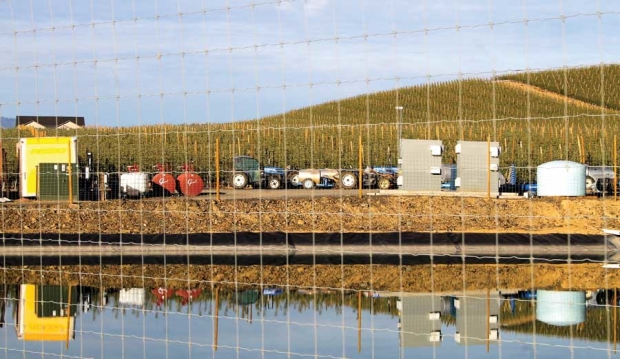
With the increased tree density, updated trellis system, and the cost of the land, Scott figures they’ll have close to $50,000 per acre invested by the time they get a crop from the trees in the third year.
That’s why he has no plans to plant more Gala or Fuji. With commodity varieties, it could be 11 to 12 years before the planting shows return on the investment.
And that’s not factoring in any potential crop loss due to frost or freeze, he noted. “If you went to your banker, I think they’d probably say ‘You’re crazy.’ If you had that kind of money, you’d be better with a CD.”
McDougall is one of three Washington packers licensed to pack the New Zealand varieties from ENZA, which include Jazz and Envy.
Rainier Fruit Company in Yakima, Washington, has marketing rights for Jazz in North America and the Oppenheimer Group, based in Vancouver, British Columbia, is the exclusive marketer of Envy.
McDougall and Sons has been in ENZA’s Washington program since day one.
“A lot of companies weren’t excited about that program because they could not have full control from packing to sales,” Scott said, but his family was willing to accept that because of the quality of the varieties and good returns per acre.
“The club system, for us, is making this kind of investment look a little more attractive,” he said. “All this works as long as we get paid for the fruit. But we don’t have any guarantee from one year to the next that the retailer’s going to pay us. It’s a high-stakes game. It’s always been risky in any kind of farming, but when you’re putting this kind of money into these systems, it definitely can keep you up at night.”
McDougall and Sons’ flagship variety, and Scott’s personal favorite, is Ambrosia, a variety discovered in British Columbia. The company has owned the U.S. rights for the past decade.
A challenge to growing Ambrosia is its very short picking window — something that worries Scott as the variety becomes more widely available for planting after the patent expires.
Applications of Harvista (1-methylcyclopropene) shortly before harvest can help slow maturity so it can be picked over a longer time.
Growers who don’t have access to managed varieties have done well with Honeycrisp, but McDougall and Sons won’t be planting any more of that either.
Besides not being grower friendly, it’s a challenge at the warehouse, averaging only 12 to 13 packs per bin — not much more than half the packout of some other varieties.
Scott said that still pencils out when Honeycrisp is selling for $50 or more a box, but he’s also concerned that the increasing volumes of Honeycrisp produced in Washington will put pressure on prices.
Scott is testing other varieties, while recognizing there is limited retail shelf space. Any new apple will have to look and taste great, as well as be grower and packer friendly, he said.
“You really need to look at the full horticultural suitcase,” he said, because otherwise, “Just going out and planting new varieties can escalate your position in the cemetery.”
McDougall and Sons has been prepared to take the risks involved in expansion, not only to stay competitive but also to continue the integration with their sales company, Columbia Marketing International (in which they are partners), and to benefit the next generation, Scott said.
“To continue to grow has been a necessity because we know we have another generation coming, and the way this business has escalated, either you’re in at a certain volume or you’re out.” •
—by Geraldine Warner

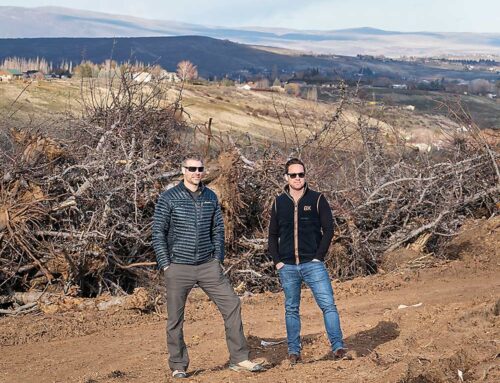

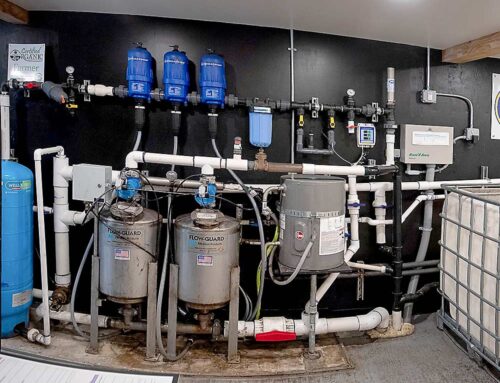
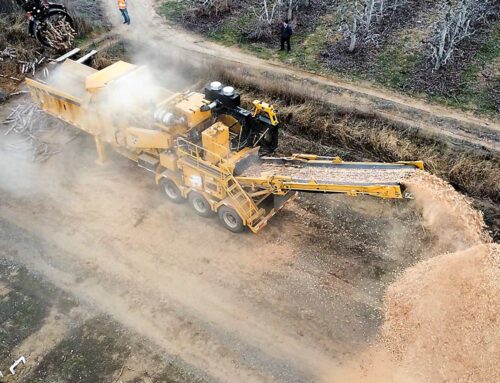
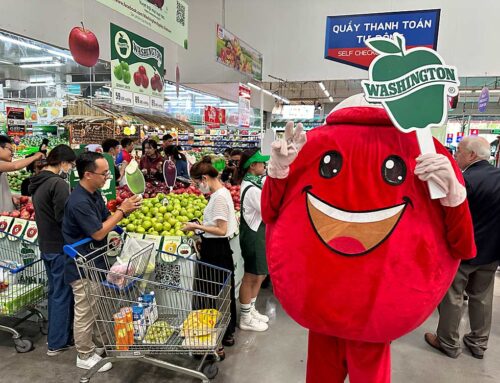
Leave A Comment